Marjorie Valbrun
- 2001
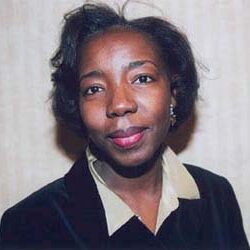
Fellowship Title:
- Haitian Immigrants' Emerging American Identity & Political Activism
Fellowship Year:
- 2001
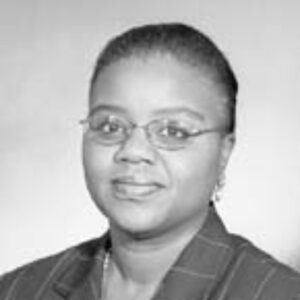
Coming Out Party: Haitian-American Women Step Out From Behind The Scenes and Into U.S. Politics
Marie St. Fleur makes her way to the podium, zigzagging between the banquet tables, tossing a wave here, touching a few outstretched hands there, smiling like she’s buoyed by the warm applause and the giddy expectation coursing through the Miami hotel ballroom. SIDEBAR – Up and Coming: Other Haitian-American Women Making Their Mark Up and Coming: Other Haitian-American Women Making Their Mark Marleine Bastien – Executive Director of Fanm Ayisyen Nan Miyami Inc. (Haitian Women of Miami Inc.) Ms. Bastien co-founded the organization, known as FANM, in 1991 with 12 other Haitian-American women. A clinical social worker, she said she got the idea after seeing many Haitian women in crisis who didn’t know were to go to for help for social, economic and cultural problems. The Miami Herald, in a special millennium edition, named Ms. Bastien and another Haitian-American women, among the “40 special people who will make South Florida’s next century as exciting and unpredictable as the last one.” Last year, Amnesty International gave her a human rights award for her work on behalf
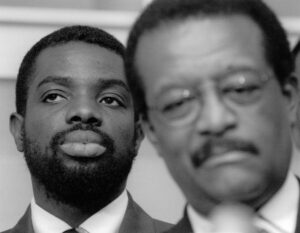
Haitians in New York
Brooklyn, NY — It was one of those New York City summer days when the heat bounced back and forth between buildings and the asphalt seemed to sweat. The temperature alone was cause for irritation. The police department’s timing could not have been worse. Convinced that a murder suspect was hiding in an East Flatbush neighborhood, several patrolmen blocked off the busy intersection of Nostrand Avenue and Beverly Road and randomly stopped and checked cars. On any other day, residents of this bustling Haitian immigrant enclave might have considered the searches just another inconvenience of urban life. But this was no ordinary day. It was June 8, 1999 and the mixed and controversial verdicts had just been announced in a federal court case involving several police officers accused of brutally beating and torturing a Haitian immigrant. One officer was convicted and three were acquitted. Haitian immigrant Abner Louima, left, listens with one of his lawyers, Johnnie L. Cochran, Jr., during a news conference in New York, Aug. 6, 1998. Louima sought compensation for police brutality
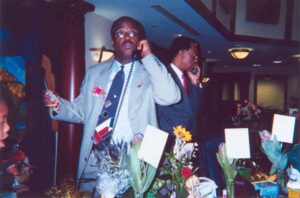
Haitian-Americans: Their Search for Political Identity in South Florida
Phillip Brutus insists he isn’t nervous, but there is an anxious edge to him on this first day of the Florida legislative session. It’s there, in his clipped conversations and his hurried gait as he walks the halls of the State House, shaking hands with this Senator and that Representative, popping into the offices of certain influential lawmakers, checking his Palm Pilot repeatedly to keep on schedule. State Rep. Phillip Brutus, on the first day of the legislative session, surrounded by flowers and gifts from well-wishers. In addition to the countless ceremonial receptions marking the start of the session, there is a Democratic Caucus strategy planning breakfast to attend, committee meetings to sit through, and lawmakers to buttonhole to support for legislation he is sponsoring. He has five meetings scheduled with constituents, one with a lobbyist and one with a Republican committee chairman. It’s as if Brutus has two days instead of two years to accomplish the goals he set out for himself and the community he newly represents. But considering how hard it was
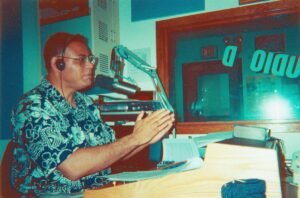
Haitian-American Politics in Chicago
CHICAGO – A lazy, humid afternoon in the Windy City. Unity Radio is on the air. The topic? Politics. The opinions? Endless. Today’s subject is the controversial presidential elections of last fall. The amateur commentators trade political views like sports announcers rattling off the minutia of a post-season game. If you thought that by now even talk radio would have tired of mulling over the election results, you might have been right if this weren’t a weekly radio program run by and for local Haitian immigrants. On this day, the disputed vote tally they are discussing is not the one that put George W. Bush in the White House. It’s the one that happened “back home” – in Haiti. During the two-hour Creole language talk show, the subject of U.S. politics never comes up. Not the recent city council races or upcoming campaigns for the state legislature. This political discussion may be in America, but it’s certainly not of it. Haitians here are deeply tied to Haiti and are acutely interested in what’s happening there,
